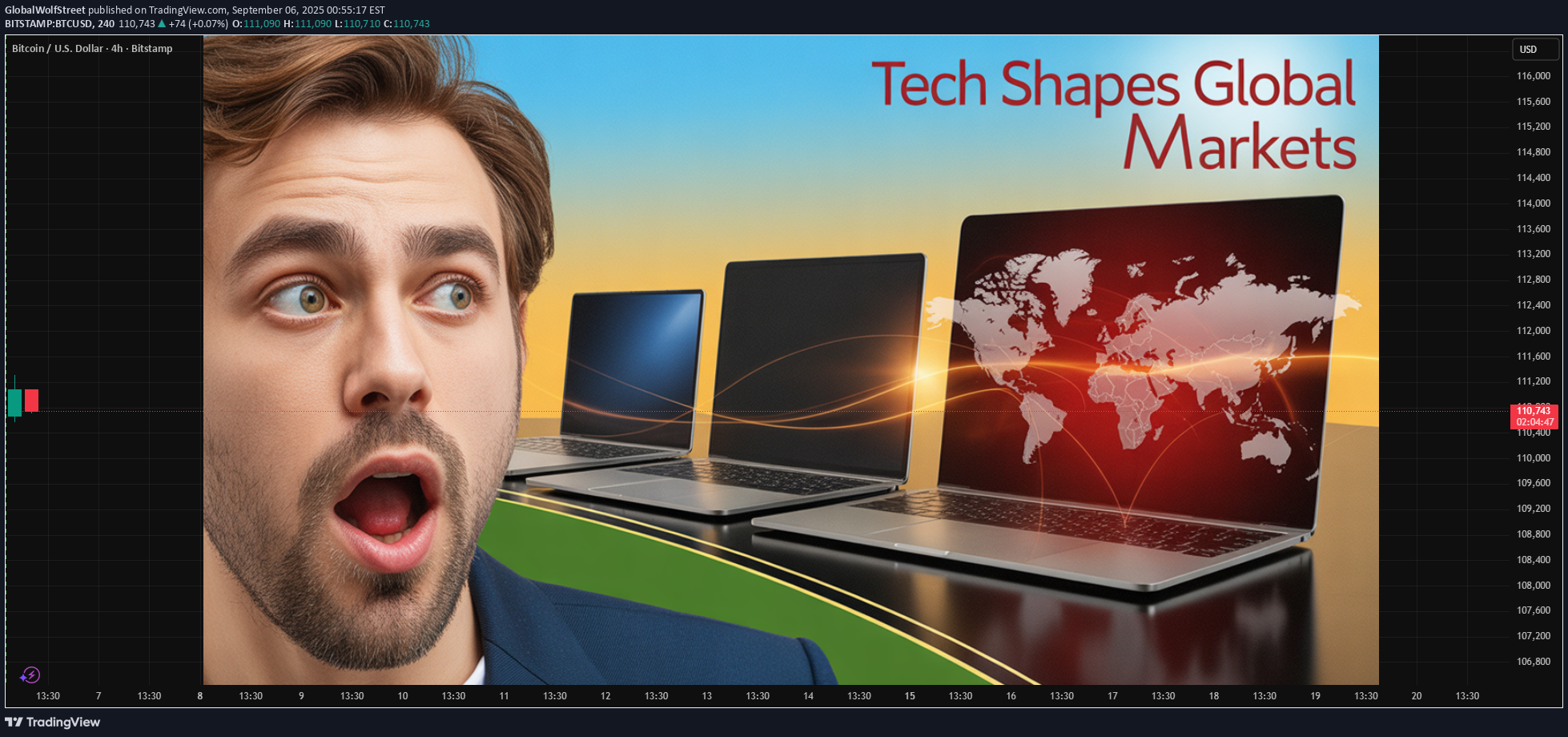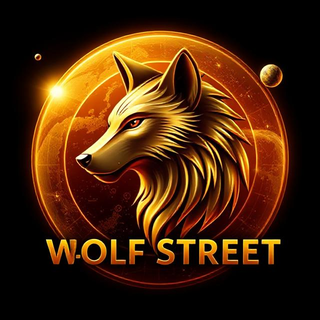06.09.2025 tarihinde sembol BTC hakkında Teknik GlobalWolfStreet analizi

1. Historical Evolution of Technology in Markets a. Early Communication Systems In the 1800s, financial markets were largely local. Traders depended on physical meetings or handwritten letters to exchange market information. The invention of the telegraph (1837) and later the telephone (1876) dramatically reduced the time it took to transmit financial information across cities and countries. For example, stock prices could be sent from New York to London in minutes instead of weeks. b. Electronic Trading Emergence The 20th century saw the development of electronic ticker systems, allowing near real-time updates of market prices. By the 1970s and 1980s, exchanges began experimenting with electronic order-matching systems. NASDAQ, founded in 1971, became the world’s first electronic stock exchange. c. The Internet Revolution The 1990s introduced the internet into global markets. Online trading platforms allowed retail investors to directly access markets without relying solely on brokers. E-commerce platforms like Amazon and Alibaba transformed global consumer markets, while digital communication allowed businesses to operate internationally with ease. d. 21st-Century Transformations Today’s markets are dominated by high-frequency trading (HFT), artificial intelligence (AI)-driven strategies, blockchain technologies, cloud computing, and mobile financial services. Cross-border investing is instantaneous, and global markets operate nearly 24/7 with technology as their backbone. 2. Key Roles of Technology in Global Markets a. Enhancing Market Efficiency Technology reduces information asymmetry by providing real-time access to prices, news, and economic data. Algorithms match buyers and sellers instantly, narrowing bid-ask spreads and improving liquidity. b. Democratization of Access Earlier, only wealthy institutions could access sophisticated markets. Now, mobile apps and online brokerages allow small retail investors across the world to trade with minimal costs. Platforms like Robinhood, Zerodha, and eToro have expanded participation, enabling global capital flows. c. Speed and Automation High-frequency trading systems can execute thousands of trades per second, exploiting micro-price differences across exchanges. Automation has also entered settlement systems. For example, blockchain-based smart contracts can settle cross-border payments instantly, reducing costs and delays. d. Integration of Global Trade and Supply Chains Technology supports global commerce through logistics software, digital supply chain management, and e-commerce. Platforms like Amazon, Alibaba, and Shopify connect producers in one country directly with consumers worldwide. e. Data and Analytics Markets today thrive on data. Artificial intelligence and machine learning analyze billions of data points—from satellite images to social media sentiment—to predict economic and financial trends. Big data tools allow investors and companies to manage risks better, anticipate market shifts, and optimize operations. f. Financial Innovation Technology has given rise to new asset classes such as cryptocurrencies, NFTs, and tokenized securities. Decentralized Finance (DeFi) platforms now allow global lending, borrowing, and investing without intermediaries. 3. The Role of Technology Across Market Segments a. Stock Markets Stock exchanges globally, like NYSE, NASDAQ, London Stock Exchange, and NSE India, operate through highly advanced trading platforms. Investors across the world can place trades in milliseconds, and order books are updated in real-time. AI-driven portfolio management tools (robo-advisors) help retail investors diversify globally at low costs. b. Foreign Exchange (Forex) Markets The forex market is the world’s largest, trading over $7 trillion daily. Technology enables real-time currency trading across time zones. Electronic Communication Networks (ECNs) match global buyers and sellers, improving liquidity and reducing barriers. Mobile apps allow individuals to hedge against currency risk or speculate, regardless of location. c. Commodities and Energy Markets Technology enables smart logistics, digital commodity trading platforms, and automated hedging strategies. For oil, metals, and agricultural products, satellite data and IoT devices provide real-time production and supply information, improving transparency. d. Cryptocurrency and Digital Assets Blockchain technology has created entirely new forms of global markets. Bitcoin, Ethereum, and other cryptocurrencies trade on global exchanges accessible 24/7. DeFi protocols allow people to lend, borrow, and earn interest globally without banks. e. E-commerce and Consumer Markets Global consumer markets are dominated by digital platforms. Amazon, Alibaba, Flipkart, and Mercado Libre connect sellers and buyers worldwide. Payment technologies like PayPal, UPI, and digital wallets facilitate seamless cross-border transactions. 4. Benefits of Technology in Global Markets Accessibility: Investors and businesses worldwide can participate, regardless of geography. Efficiency: Faster transactions, lower costs, and transparent processes. Liquidity: Electronic platforms ensure deep pools of buyers and sellers. Innovation: Emergence of new asset classes and financial instruments. Transparency: Real-time reporting and monitoring reduce fraud and insider advantages. Inclusivity: Small investors and businesses gain entry into markets once dominated by large institutions. 5. Risks and Challenges of Technology in Global Markets a. Cybersecurity Threats Global markets face risks of hacking, data breaches, and fraud. High-profile exchange hacks (like Mt. Gox in 2014) show how vulnerable digital markets can be. b. Market Volatility Algorithmic trading sometimes amplifies volatility, as seen in the “Flash Crash” of May 2010 when the Dow dropped nearly 1,000 points within minutes. c. Digital Divide While technology democratizes access, millions worldwide remain excluded due to lack of internet, devices, or digital literacy. d. Regulatory Challenges Cross-border digital markets are hard to regulate uniformly. For example, cryptocurrency regulations differ drastically between countries, creating uncertainty. e. Over-Reliance on Technology System failures, outages, or glitches can halt global trading. For instance, NYSE and NSE India have both faced trading halts due to technical issues. 6. The Future of Technology in Global Markets a. Artificial Intelligence (AI) and Machine Learning AI will further automate trading, risk management, and fraud detection. Predictive analytics will become central to investment decisions. b. Blockchain and Decentralization Blockchain has the potential to eliminate intermediaries in global markets, reducing costs and improving efficiency. Tokenization may allow fractional ownership of real-world assets like real estate and art. c. Quantum Computing Quantum technology could revolutionize market modeling, encryption, and trading strategies, offering new levels of computational power. d. Sustainable and Green Technology Technology will enable carbon credit markets, renewable energy trading platforms, and ESG-focused investing. Blockchain can track supply chain sustainability and ethical sourcing. e. Global Financial Inclusion Mobile banking and fintech will bring billions of unbanked individuals into the global financial system, especially in developing nations. 7. Case Studies Robinhood and Gamestop (2021): Showed how technology and social media democratize access but also create risks of market manipulation. Alibaba Singles’ Day Sales: A showcase of how e-commerce technology creates global consumer demand, with billions in sales in a single day. Cryptocurrency Boom: Bitcoin’s rise to a trillion-dollar asset class highlights the disruptive role of blockchain in global finance. Tesla’s Global Supply Chain: Use of AI, automation, and digital logistics to manage global production and delivery networks. Conclusion Technology is not just an enabler but the backbone of modern global markets. It drives speed, efficiency, innovation, and inclusivity, ensuring that capital, goods, services, and information flow seamlessly across borders. However, its power also comes with risks—cyber threats, volatility, inequality, and regulatory challenges—that must be managed carefully. As we look ahead, technology’s role will only deepen, with AI, blockchain, and fintech shaping the next wave of market evolution. The ultimate challenge will be to harness technology’s benefits while creating safeguards that ensure global markets remain fair, stable, and inclusive for all.
